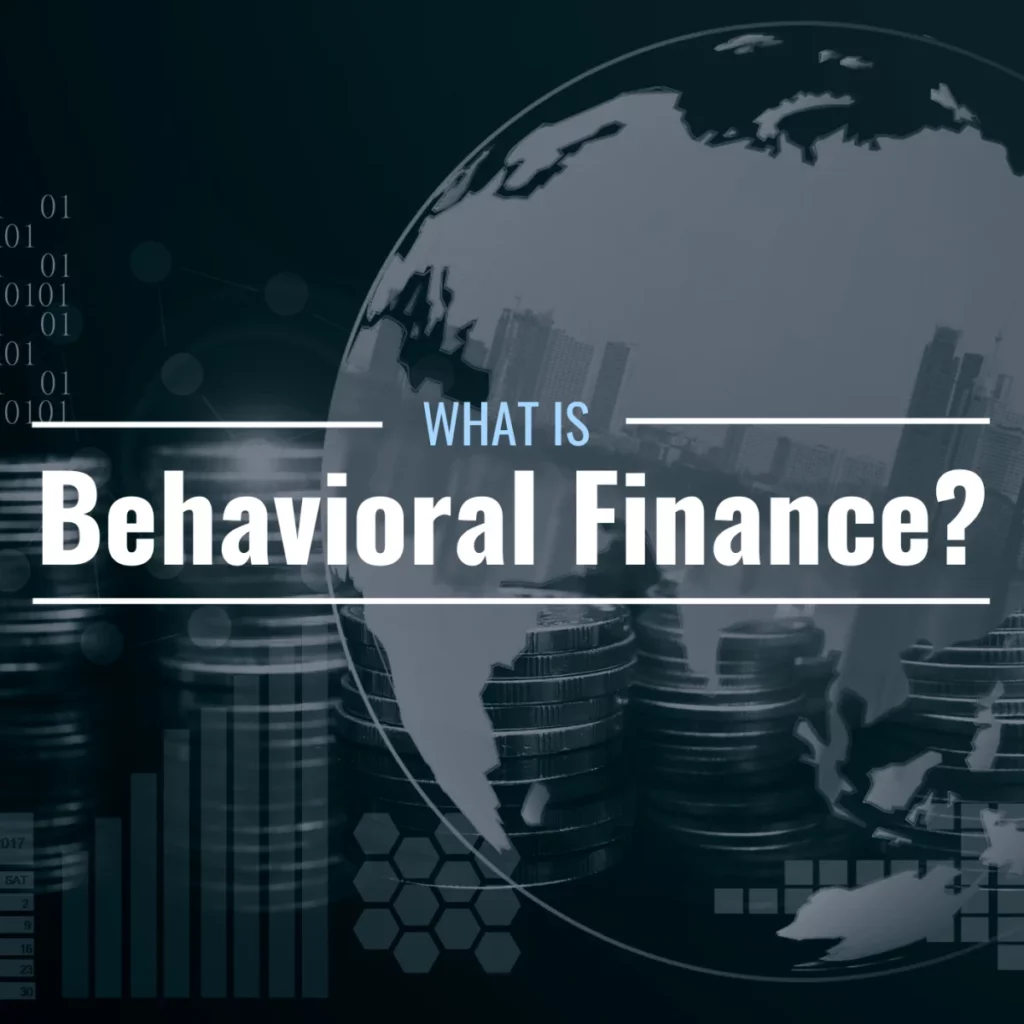
Understanding human behavior and how it affects financial markets is crucial in the dynamic world of finance, where choices can make or break fortunes. Welcome to our thorough guide on behavioral finance, where we delve into its nuances and offer insights and knowledge that can assist investors, analysts, and enthusiasts in navigating the challenging environment of financial decision-making.
What is Behavioral Finance?
Fundamentally, Behavioral Finance is an interdisciplinary field that integrates aspects of psychology and economics to investigate how social factors, emotional factors, and cognitive biases impact financial decisions. It departs from conventional finance theory, which presumes that people always make logical decisions. In reality, emotions and cognitive biases frequently cause people to make bad decisions.
The Psychology of Finance
It is essential to comprehend the psychology of financial decisions. We will look at the various psychological factors that affect investors’ decision-making in this section.
- Potential Theory
The foundation of behavioral finance is the prospect theory, which was created by Daniel Kahneman and Amos Tversky. It asserts that people frequently base their decisions on anticipated gains and losses rather than the final result. This understanding of human psychology can aid investors in making better decisions and minimizing risk. - Overconfidence Bias
The overconfidence bias is a prevalent cognitive bias that causes people to overestimate their skills and knowledge. This bias in finance can cause overtrading, which can cause sizable losses. Financial success depends on being able to identify and reduce overconfidence.
Cognitive Biases in Finance
Cognitive biases are systematic patterns of judgmental deviance from the norm or reason, frequently in ambiguous circumstances. These biases have the potential to significantly affect investment plans.
- Confirmation Bias
People who suffer from confirmation bias tend to ignore contradictory evidence and seek out information that supports their current beliefs. This could lead to bad investment decisions and sizable losses. Success requires understanding confirmation bias and knowing how to counteract it. - Loss Aversion
The propensity for people to prefer avoiding losses over achieving equivalent gains is known as loss aversion. Investors can manage risk and make more logical decisions when faced with potential losses by being aware of this bias.
The Impact on Investment Strategies
Understanding biases is only one aspect of behavioral finance; another is using this knowledge to improve investment strategies.
- Value Investing
Value investing is a strategy that takes advantage of market mispricing brought on by behavioral biases and was made popular by Warren Buffett. Investing in undervalued assets can help investors accumulate wealth over time. - Market Timing
Another tactic heavily influenced by behavioral finance is market timing. One can make better decisions about when to enter or exit the market by comprehending investor sentiment and market psychology.
Practical Applications of Behavioral Finance
- Risk Management
In terms of risk management, behavioral finance is extremely important. You can create risk management strategies that take into account irrational behavior by comprehending how investors respond to market fluctuations. For instance, putting stop-loss orders into place or diversifying your portfolio can assist in reducing losses brought on by rash choices made during market downturns. - Investment Psychology
Behavioral finance’s fascinating study of investment psychology. It entails being aware of the biases and emotions that affect investment choices. Being aware of these psychological influences enables you to remain calm during times of market turbulence and make thoughtful decisions. - Behavioral Portfolio Theory
Investors are typically thought to be rational and risk-averse, according to traditional portfolio theory. Behavioral Portfolio Theory, on the other hand, takes into account the idea of behavioral biases and enables you to build a portfolio that corresponds to your actual risk tolerance and behavioral preferences. With the aid of this method, you can create a portfolio that you’ll be more likely to maintain throughout market ups and downs. - Behavioral Economics in Marketing
The concepts of behavioral finance go beyond investing. They also cover consumer behavior and marketing. Businesses can tailor their marketing strategies to successfully influence customer choices by understanding consumer biases and irrational decision-making.
Real-World Success Stories
By incorporating behavioral finance principles into their strategies, a number of investors and fund managers have seen significant success. The importance of comprehending human behavior in the financial markets is emphasized in these stories:
- Warren Buffett
One of the most successful investors of all time, Warren Buffett, credits a large part of his success to his ability to remain calm amid market euphoria and panic. His investment strategy is heavily influenced by behavioral finance concepts, which enables him to profit from other market participants’ irrational behavior. - Richard Thaler
Richard Thaler, a pioneer in behavioral economics, won the Nobel Prize for his contributions to the field. His work has had a significant influence on how we view financial decision-making and has helped many investors achieve better results.
Conclusion
Behavioral finance is a useful tool that you can use to make better financial decisions; it is not just a theoretical idea. You can become a more knowledgeable and successful investor by becoming aware of the psychological influences on your decisions.
In the fiercely competitive world of finance, applying behavioral finance principles to your investment strategy can help you gain an advantage. Remember that understanding the human factor that influences market dynamics is just as important as understanding the numbers when it comes to investing. With this information, you can better navigate the financial environment and possibly outperform your rivals in the finance industry.
FOR MORE INFO CLICK THIS SITE:https://learningsharks.in/
FOLLOW OUR PAGE:https://www.instagram.com/learningsharks/?hl=en
